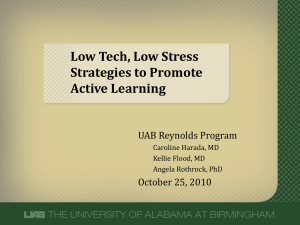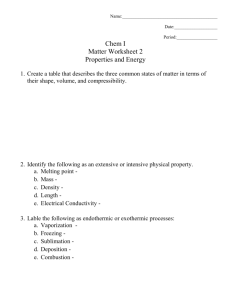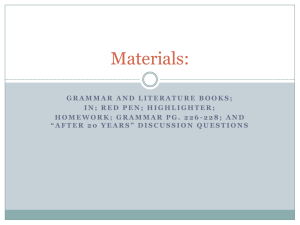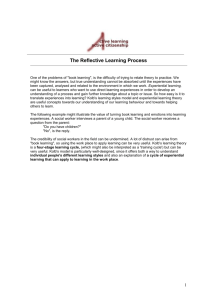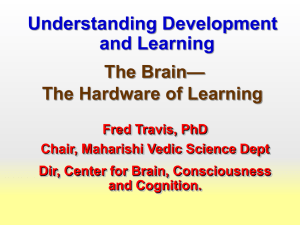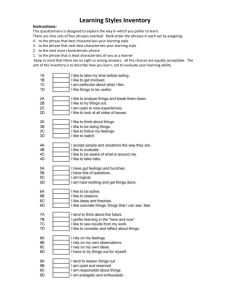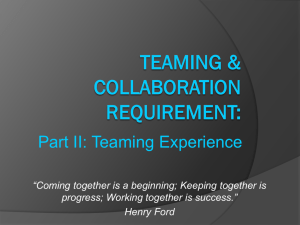Kolb Learning Style Inventory
advertisement
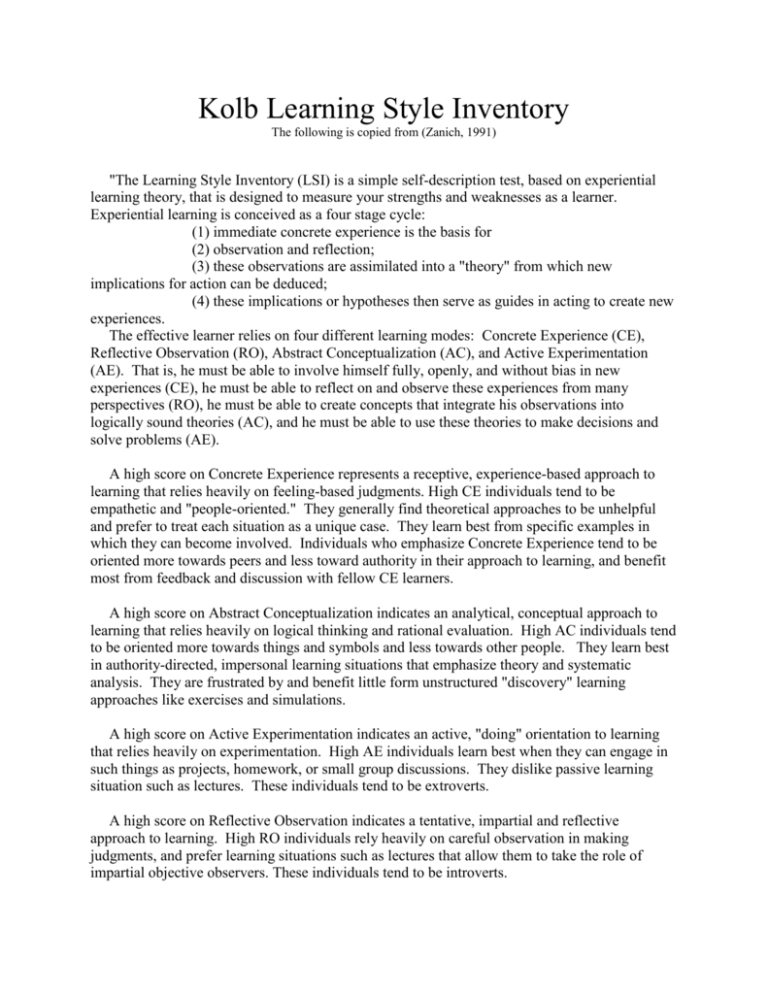
Kolb Learning Style Inventory The following is copied from (Zanich, 1991) "The Learning Style Inventory (LSI) is a simple self-description test, based on experiential learning theory, that is designed to measure your strengths and weaknesses as a learner. Experiential learning is conceived as a four stage cycle: (1) immediate concrete experience is the basis for (2) observation and reflection; (3) these observations are assimilated into a "theory" from which new implications for action can be deduced; (4) these implications or hypotheses then serve as guides in acting to create new experiences. The effective learner relies on four different learning modes: Concrete Experience (CE), Reflective Observation (RO), Abstract Conceptualization (AC), and Active Experimentation (AE). That is, he must be able to involve himself fully, openly, and without bias in new experiences (CE), he must be able to reflect on and observe these experiences from many perspectives (RO), he must be able to create concepts that integrate his observations into logically sound theories (AC), and he must be able to use these theories to make decisions and solve problems (AE). A high score on Concrete Experience represents a receptive, experience-based approach to learning that relies heavily on feeling-based judgments. High CE individuals tend to be empathetic and "people-oriented." They generally find theoretical approaches to be unhelpful and prefer to treat each situation as a unique case. They learn best from specific examples in which they can become involved. Individuals who emphasize Concrete Experience tend to be oriented more towards peers and less toward authority in their approach to learning, and benefit most from feedback and discussion with fellow CE learners. A high score on Abstract Conceptualization indicates an analytical, conceptual approach to learning that relies heavily on logical thinking and rational evaluation. High AC individuals tend to be oriented more towards things and symbols and less towards other people. They learn best in authority-directed, impersonal learning situations that emphasize theory and systematic analysis. They are frustrated by and benefit little form unstructured "discovery" learning approaches like exercises and simulations. A high score on Active Experimentation indicates an active, "doing" orientation to learning that relies heavily on experimentation. High AE individuals learn best when they can engage in such things as projects, homework, or small group discussions. They dislike passive learning situation such as lectures. These individuals tend to be extroverts. A high score on Reflective Observation indicates a tentative, impartial and reflective approach to learning. High RO individuals rely heavily on careful observation in making judgments, and prefer learning situations such as lectures that allow them to take the role of impartial objective observers. These individuals tend to be introverts. The following summary of the four basic learning style types is based on both research and clinical observation of these patterns of LSI scores. The CONVERGER's dominant learning abilities are Abstract Conceptualization (AC) and Active Experimentation (AE). This person's greatest strength lies in the practical application of ideas. A person with this style seems to do best in those situations like conventional intelligence tests where there is a single correct answer or solution to a question or problem. This person's knowledge is organized in such a way that through hypothetical-deductive reasoning this person can focus it on specific problems. Research on this style of learning shows that Converger's are relatively unemotional, preferring to deal with things rather than people. They tend to have narrow technical interests, and choose to specialize in the physical sciences. This learning style is characteristic of many engineers. The DIVERGER has the opposite learning strengths of the converger. This person is best at Concrete Experience (CE) and Reflective Observation (RO). This person's greatest strength lies in imaginative ability. This person excels in the ability to view concrete situations from many perspectives. We have labled this style Diverger because a person with this style performs better in situations that call for generation of ideas such as a "brainstorming" idea session. Research shows that Divergers are interested in people and tend to be imaginative and emotional. They have broad cultural interests and tend to specialize in the arts. This style is characteristic of individuals from humanities and liberal arts backgrounds. Counselors, organization development specialists and personnel managers tend to be characterized by this learning style. The ASSIMILATOR's dominant learning abilities are Abstract Conceptualization (AC) and Reflective Observation (RO). This person's greatest strength lies in the ability to create theoretical models. This person excels in inductive reasoning and in assimilating disparate observations into an integrated explanation. This person, like the converger, is less interested in people and more concerned with abstract concepts, but is less concerned with the practical use of theories. For this person it is more important that the theory be logically sound and precise; in a situation where a theory or plan does not fit the "facts," the Assimilator would be likely to disregard or re-examine the facts. As a result, this learning style is more characteristic of the basic sciences and mathematics rather than the applied sciences. In organizations this learning style is found most often in the research and planning departments. The ACCOMMODATOR has the opposite learning strengths of the Asssimilator. This person is best at Concrete Experience (CE) and Active Experimentation (AE). This person's greatest strength lies in doing things in carrying out plans and experiments and involving oneself in new experiences. This person tends to be more of a risk-taker than people with the other three learning styles. We have labeled this person "Accomodator" because this person tends to excel in those situations where one must adapt oneself to specific immediate circumstances. In situations where a theory or plan does not fit the "facts," this person will most likely discard the plan or theory. This person tends to solve problems in an intuitive trial and error manner, relying heavily on other people for information rather than on one's own analytic ability. The Accomodator is at ease with people but is sometimes seen as impatient and "pushy." This person's educational background is often in technical or practical fields such as business. In organizations people with this learning style are found in "action-oriented" jobs often in marketing or sales." References Kolb, D. (1985). Learning style inventory. Boston, MA: McBer and Company. Zanich, M. L. (1991). Learning styles / teaching styles. Unpublished Manuscript, Indiana University of Pennsylvania, Teaching Excellence Center, Indiana, PA.
